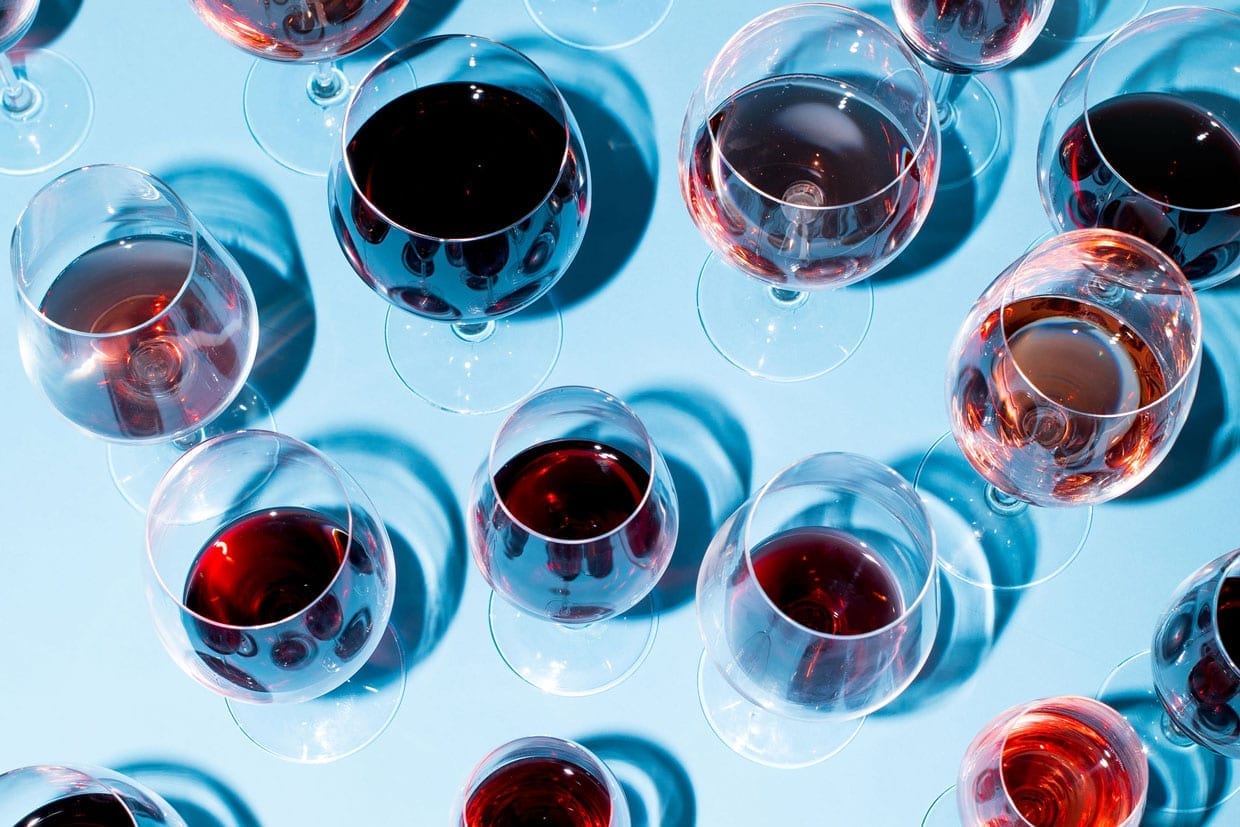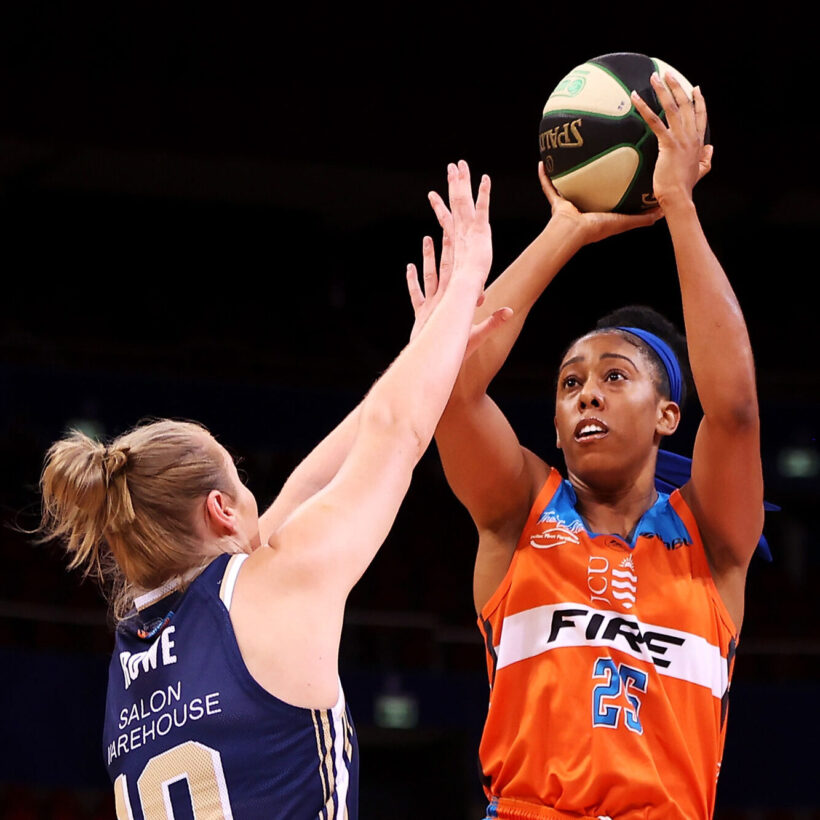You have heard of (or experienced) the freshman fifteen. This somewhat inevitable weight gain happens to many college students who are in charge of their own meals for the first time and forgo the recommended food groups in lieu of beer, beer and more beer. But far past the university days, plenty of adults consume alcoholic beverages on a daily basis. With many decadent parts of our diets or lives, “anything in moderation” is a common mantra, but what happens when one glass of stress-relieving red wine leads to another? And then a few more? Though a plump belly has often been credited to brews, recently, “wine belly” has many fans raising an eyebrow. Can indulging in your go-to variety really cause uncomfortable weight gain in your midsection? Here, experts dispel myths about these new revelations and provide tips you can trust.
What is Wine Belly?
As the name suggests, wine belly is the concept that drinking sauvignon blanc, malbec, rosé — pick your poison — will cause weight gain in your abdominal region. How did this become a trend? Holistic nutritionist and author Carly Pollack, C.C.N., M.S., says it is mainly the science. “Alcohol releases hormones that fool your body into thinking that you are in the market for stored fat. Insulin levels spike in response to the sugar in the wine, which puts you into fat storage mode,” she explains. “Since alcohol is considered a toxin to the body, your adrenal glands release cortisol as a natural stress response, which has been linked to that unfavorable spare tire you feel you can’t get rid of despite your best efforts.”
https://www.instagram.com/p/BhFoptjjg-o/
Calories in Alcohol
Does alcohol cause belly fat? Not really, if you ask registered dietitian Maryann Walsh, M.F.N., R.D. While it is true that an uptick in sugar can create fat pockets, it is less about what you are eating (or drinking) and more about the calories. In fact, Walsh says “beer belly” is a myth too; when it comes to belly fat specifically, many other factors come into play. “People need to know that all alcohol has seven calories per gram. So extra calories from all alcohol — especially alcoholic drinks coupled with sugary mixers or other added sugars — can contribute to an increase in fat around the belly area,” she says. Walsh explains this leads to constipation, which can make a normal regular person uncomfortable and rounded.
Dehydration from alcohol might be another reason people attribute bloating to wine.
So, What Causes Wine Belly Bloat?
Plenty of aspects — from your lifestyle to your age and your ability to control your portions — are culprits. Pollack shares many people struggle with added padding in their midsection as they grow older, which could be attributed to a slower metabolism, or less activity as your bones age and your body tires.
But how much wine actually makes a glass. Walsh reminds at-home wine fans that a portion is five ounces, and how few sips that are will likely surprise you. Even if you are careful about how much you consume and only enjoy a little here and there, other factors can contribute to the appearance of a “wine belly.” Walsh says your overall diet, hormones, digestive issues and other conditions should all be discussed with your doctor if you simply cannot shake the weight.
How Can You Drink Wine and Stay Healthy?
Luckily, the fact that ‘wine belly’ is a myth means you can have your glass and drink it too, as long you maintain a balance in other areas. Here are some expert-backed tips:
Choose wines smartly
As a basic rule of thumb, each 5-ounce glass of wine is between 100 and 125 calories, but not all blends are created equally. The aim is to consume less sugar, so choosing a dry wine like chardonnay, sauvignon blanc, cabernet sauvignon and merlot is a better fit for a vibrant lifestyle. “If sparkling wines are your preference, steer clear of sweet sparkling wines like Asti spumante and instead go for a Prosecco or Champagne that has ‘dry’ or ‘brut’ on the label,” Walsh says. “The drier the wine, the less sugar and the fewer calories.”
Pair a glass of water with your wine
Sure, a sharp cheddar adds dimension to any red wine — but if you want to beat the wine belly bloat, pair your glass with water instead. Walsh explains filling up on water is a smart way to ward away excess drinking or eating, and also ward off dehydration. “So many of us are so chronically dehydrated that when a glass of wine or other alcoholic beverage is placed in front of us, we down them really fast simply because we’re thirsty,” she says. It also might help you drink fewer glasses, which in turn, means fewer calories.
Enjoy wine in moderation
Drinking wine in excess, like most good things, can be tempting. It is okay to have the occasional drink pairing, but try to do so in moderation. By doing this you can keep away the wine belly bloat. There are plenty of other benefits to moderating your wine consumption such as strengthening the immune system, better diet management, increased metabolism, better sleep, and lower risks of long-term diseases. Based on a study by Red Brick Road and Opinium, gen z has been drinking less than previous generations due to the health impacts of alcohol.
Order wine after dinner
Most of the time when you dine out, the waiter takes your drink order before inquiring about appetizers or the main dish. It makes sense from the kitchen’s standpoint, so you are not twiddling your thumbs waiting for your steak to cook, but Pollack says it is actually counterproductive to ridding off belly fat. “Order your drink only after your meal has arrived so that you don’t instigate the blood sugar roller coaster that leaves you in fat storage mode,” she explains. When you order a meal that is rich in protein and fat, your blood sugar is stable, and it will not release as much insulin.







